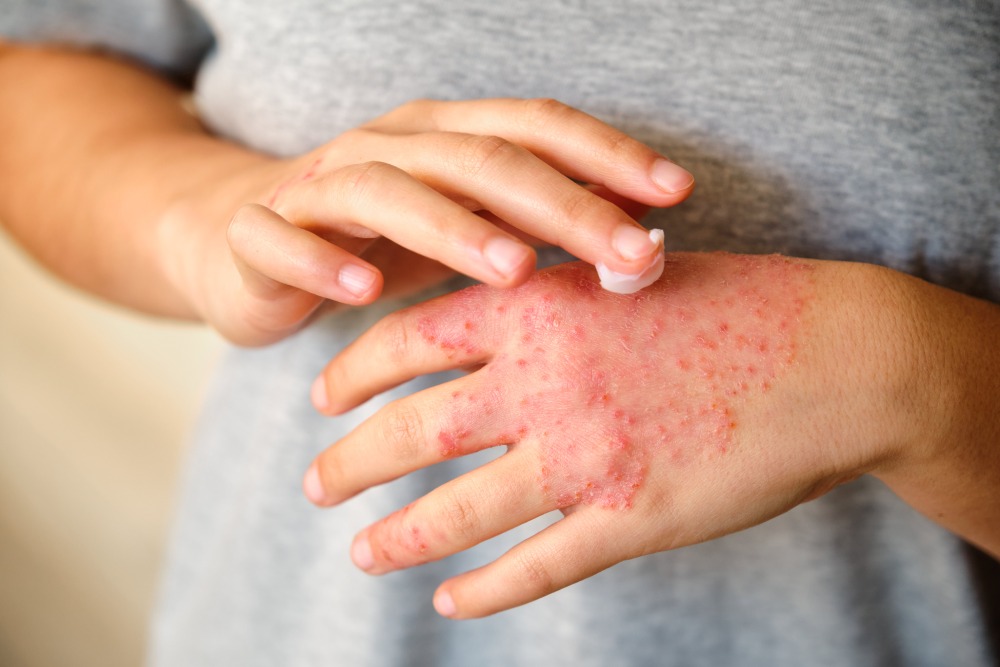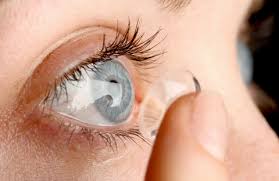
Winter can be a challenging time for those dealing with eczema. The drop in temperature, combined with indoor heating, can lead to a vicious cycle of dry, irritated skin. While eczema can appear year-round, the cold and dry conditions of winter often exacerbate its symptoms, leaving many searching for ways to find relief.
Understanding Eczema: More Than Dry Skin
Eczema, also known as atopic dermatitis, is a chronic condition that causes red, inflamed, and itchy skin. It varies in severity, lasting just a few weeks for some, while others may experience recurring flare-ups throughout the year.
Although its exact cause isn’t fully understood, eczema is often linked to a combination of genetic, environmental, and immune system factors. For those living with eczema, the condition weakens the skin’s natural barrier, making it more susceptible to irritants and allergens that cause flare-ups.
Winter and Eczema: More Than Just Cold Fingers
Winter introduces several triggers that make managing eczema tougher. Cold, dry air saps the skin of moisture, making it harder to maintain hydration. At the same time, blasting indoor heating systems strips the air of any remaining humidity, leaving skin feeling tight, dry, and prone to irritation.
Additionally, people tend to take longer, hotter showers in the winter to warm up, which can strip the skin’s natural oils. These factors combined create the perfect storm for eczema flares.
Finding Relief: Tips For Managing During the Winter
Managing eczema often involves paying close attention to your skin’s needs and making small adjustments to your daily routine. Consistent care and awareness helps reduce discomfort and improve skin resilience over time. While winter weather may not be preventable, there are practical steps you can take to soothe your skin:
Stick to Gentle Skincare
Choose skincare products that are fragrance-free and designed for sensitive skin. Mild, hydrating cleansers are ideal for washing without stripping your skin of its natural oils. After bathing, pat your skin dry rather than rubbing and follow with a moisturizer designed to lock in hydration.
Moisturize Frequently
Hydration is key during the winter months. Opt for a thick, emollient-rich cream or ointment rather than lighter lotions, as these provide better protection against moisture loss. Apply moisturizer immediately after bathing and reapply throughout the day.
Use a Humidifier
Combat indoor dryness by running a humidifier in your home, especially in bedrooms or spaces where you spend most of your time. This helps add moisture back to the air, reducing the likelihood of your skin drying out.
Take Short, Warm Showers
While a steaming hot shower may feel comforting on a cold day, it can worsen dryness. Stick to lukewarm water and limit showers to 10-15 minutes to keep your skin healthy.
Wear Breathable Fabrics
Certain fabrics, like wool, may irritate sensitive skin and trigger a flare. Choose soft, breathable materials like cotton for clothing layers, especially those directly touching the skin. Be mindful of detergents as well, opting for gentle, fragrance-free options.
Protect Your Skin Outdoors
When stepping outside into the cold, cover exposed skin with scarves and gloves to shield it from harsh winds. Protective clothing not only helps retain warmth but also reduces irritation from biting temperatures.
Moving Forward: When to See a Specialist
If your eczema symptoms persist despite trying these at-home remedies, it may be time to seek professional care. Specialists in allergy, asthma, and immunology help pinpoint triggers and recommend advanced treatments tailored to your needs.
Chronic eczema sometimes indicates an allergic reaction or related conditions, which a specialist can assess through testing or observation. Partnering with a professional can provide clarity and better long-term management of your symptoms.
Reclaim Your Comfort This Winter
Eczema doesn’t have to overshadow your winter season. By understanding how the colder months affect your skin and taking proactive steps, you can minimize irritation and discomfort. From using fragrance-free moisturizers to implementing a humidifier, these small changes can make a big difference.
If your symptoms aren’t improving or you’re unsure how to manage them, consider reaching out to a specialist. Relief is possible with the right combination of care and support. Take the first step toward healthier skin today.
RECOMMENDED ARTICLES
The Science Behind Kor Whitening and Its Effectiveness
How Primary Care Physicians Coordinate Your Overall Health
The Benefits of Daily vs. Monthly Contact Lenses
The Process and Benefits of Egg Donation for Intended Parents




